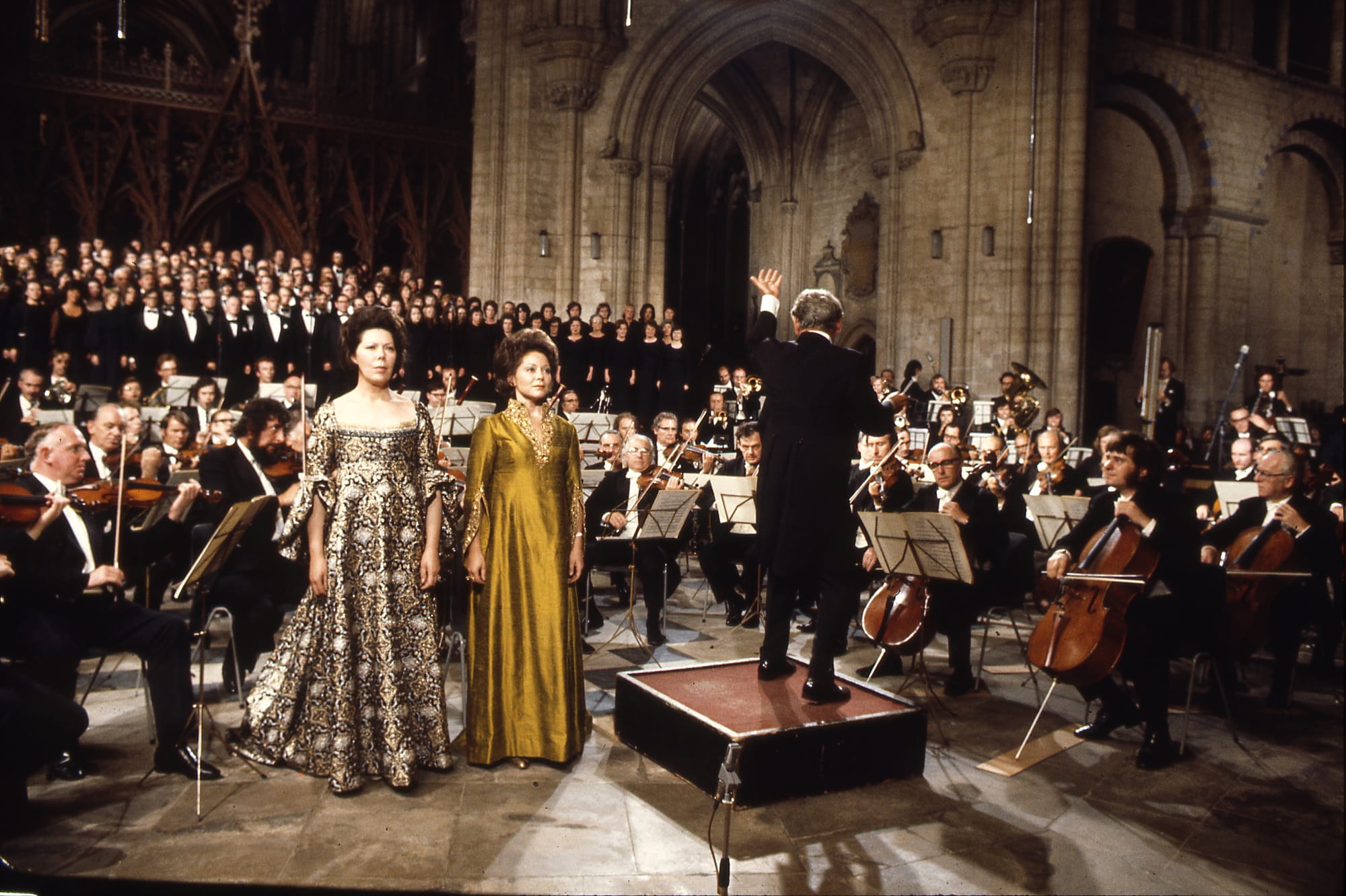REDEMPTION ARC

Playing Mahler's 2nd Symphony, 'The Resurrection' (1895) conducted by Otto Klemperer (EMI) earlier this Easter Sunday morning, I'm reminded of how Gustav may have written the single most epic Christian symphony of all time. Perhaps the only one now I come to think about it.
The piece was first introduced to me via an episode of BBC's 'The Great Composers' series back in the late 90s and I remember it distinctly as helicopter footage over large mountaintops accompanied the overwhelmingly seismic music of the 5th movement ('Im Tempo Des Scherzo') from the super-sized symphony. Even on the tiny television screen I was watching it on I had a sense that here was music bigger than even the titan Beethoven who had been my main go to symphonist at this stage of my young life.
Talk about the Superman of symphonies, this major work of Mahler's dwarfs even the most Nietzchean inspired music of Richard Strauss with his 'Also Sprach Zarathustra' and 'Ein Heldenleben'. Perhaps all old dicky boy needed was the presence of God to add some extra juice to his cosmic tone poems. Actually, both men were in fact close friends until Mahler's death in 1911 - a rare instance of camaraderie in the competitive field of classical music.
Of course, the 'Resurrection' symphony was made a little more famous recently than it already was by the inclusion of it in Bradley Cooper's 2023 'Maestro' movie - the biopic of Leonard Bernstein - that great champion of Mahler in the 20th century and the second reason I came to appreciate this masterpiece as Bernstein talked about the piece in great length in his masterful 'The Little Drummer Boy' lecture on the composer.
Watching Lenny practically dripping from the humidity of Tel Aviv, he explains with great lucidity the symbolism of Mahler's song cycles in relation to his symphonies from his apartment studio located high above Gordon beach. Unlocking the stalking spectre of the 'Little Drummer Boy' throughout all of Mahler's works, Bernstein makes a strong case for why the composer was able to emote his devotion to Christianity on one hand, but fail (perhaps deliberately so) to conceal his Jewish heritage in another. For me, it's clear that what makes Mahler's music so powerful and so accessible to audiences across the world is his spiritual questing, that constant search for meaning wherever he could find it - whether it be the bible, nature or Chinese poetry. He was, as my late father might say, 'a spiritual tourist'. Perhaps if more of us were inclined toward a spot of 'spiritual tourism' we might find a greater softening in our absolute positions of theology, religious certainty or indeed absence of beliefs as is the case with atheists who can be as fundamentalist as anyone.
Certainly, listening to the symphony this morning with coffee and hot cross buns I feel as if Mahler has certainly done his bit for mankind by orchestrating the themes of suffering and resurrection and made it something that can be understood with the heart rather than the overthinking mind. Regardless of where one sits in relation to Christ, we can all appreciate the great art that his story has inspired.
In the meantime, I'm still waiting for a Dawkins-themed 'God Delusion' symphony to rival the 'Resurrection'.
I fear it may be a long time coming - a bit like the atheist dial-a-prayer service.
Happy Easter!
Digital Renegade
31st March, 2024